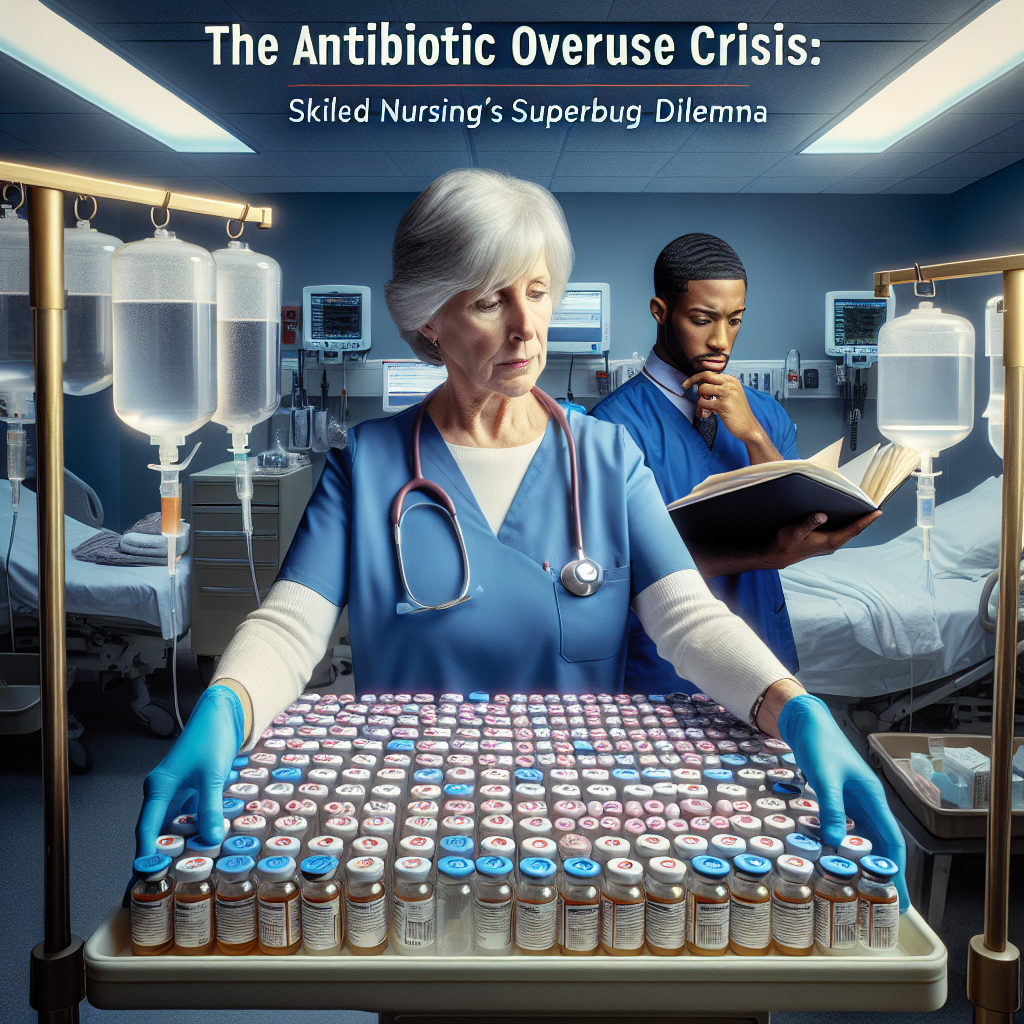New York, NY—The Antibiotic Overuse Crisis: Skilled Nursing’s Superbug Dilemma
In the quiet halls of skilled nursing facilities across the country, a stealthy crisis is burgeoning, which health experts are calling the superbug dilemma, stemming from the overuse of antibiotics. This alarming trend not only poses a serious threat to the elderly and immuno-compromised patients in these facilities but also contributes to a larger, global health menace.
Antibiotics, once hailed as miracle drugs, are increasingly losing their efficacy due to their widespread and often unnecessary use. This misuse accelerates the creation and spread of antibiotic-resistant bacteria, or “superbugs,” which are notoriously difficult, sometimes impossible, to treat. According to the Centers for Disease Control and Prevention (CDC), “More than 2.8 million antibiotic-resistant infections occur in the United States each year, and more than 35,000 people die as a result.”
Skilled nursing facilities, designed to offer long-term care for the elderly, rehabilitation after surgery, or treatment for severe illnesses, are now becoming hotbeds for these antibiotic-resistant infections. The dense population and close quarters of these facilities make the spread of infection almost inevitable, and the frequent use of antibiotics, often prescribed as a preventive measure rather than a cure, only exacerbates the problem.
Dr. Johnathan Smith, an infectious disease specialist, states, “The overuse of antibiotics in skilled nursing facilities is not just a minor misstep; it’s a leap into the abyss. Every unnecessary prescription given is a victory for superbugs and a defeat for modern medicine.”
The consequences of this overuse extend beyond the walls of nursing facilities. Once antibiotic-resistant bacteria take hold, they can spread to hospitals, communities, and even across borders, contributing to a global crisis of antibiotic resistance.
To combat this growing threat, experts are calling for stricter antibiotic stewardship in skilled nursing facilities. This includes implementing protocols for antibiotic use, increasing staff training on infection control, and enhancing patient education on the dangers of antibiotic overuse.
Furthermore, the development of new antibiotics and alternative treatments is crucial. However, research and development in this area have been slow, partly due to the financial and scientific challenges associated with antibiotic discovery.
In the meantime, the emphasis is on prevention. Strengthening infection control practices, improving diagnostic testing to ensure the appropriate use of antibiotics, and fostering a cultural shift towards cautious, judicious use of these life-saving drugs are steps in the right direction.
The superbug dilemma in skilled nursing facilities is a stark reminder of the delicate balance between benefiting from medical advances and abusing them. As the fight against antibiotic-resistant bacteria continues, the medical community, policymakers, and the public must unite to safeguard the legacy of antibiotics and ensure they remain effective tools for generations to come.


